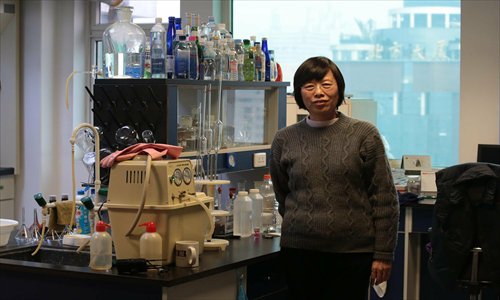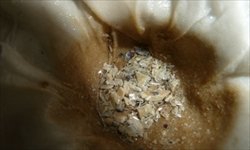HOME >> CHINA
Beijing’s tap water concerns spill nationwide
Source:Globaltimes.cn Published: 2013-1-16 16:12:00
| Editor's Note |
Nationwide concern over water quality issues in China sparked once again after a Beijing water researcher expressed her mistrust towards the city’s tap water and admitted she had been drinking bottled water for the past two decades.
Zhao Feihong, 58, a researcher on drinking water at the Beijing Healthcare Association, told Guangzhou-based Southern Weekly she and her husband, water expert Li Fuxing, had not drank tap water for 20 years.
| Latest News |
Global Times, Jan.16, 2013: Watered down truth
Concerns about water quality are hardly new.
Global Times, Jan. 9, 2013: Irate about nitrate levels in my tap water
Water experts in Beijing note that local tap water quality has declined over the past few decades to the point now where it is so high in nitrate that it poses serious health risks to infants. It can't be good for adults, either.
Globaltimes.cn, Jan. 6, 2013: Water expert admits to never drinking Beijing tap
A Beijing expert revealed she had stopped drinking tap water 20 years ago as water quality in the capital continues to decline, according to Southern Weekly report.
| Water Standard |
Level of tap water in China:
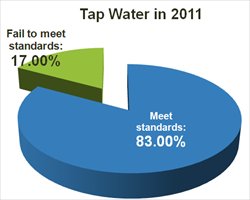 The Ministry of Housing and Urban-Rural Development (MOHURD) unveiled on May 10, 2012, that the level of tap water in China meeting standards stood at 83 percent. |
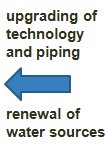 |
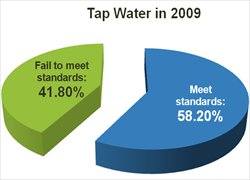 On May 11, 2012, Century Weekly magazine quoted insiders as saying that an unreleased MOHURD survey from 2009 showed that half of tap water had failed to meet bacteria and heavy metal standards. |
Water source:
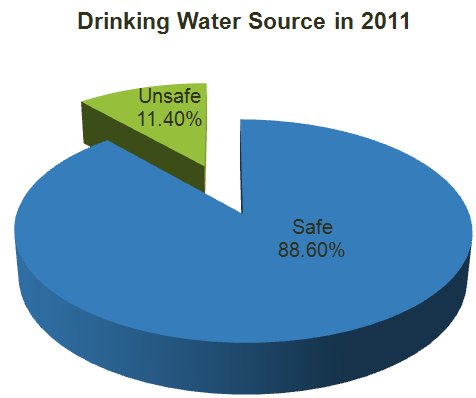
According to a survey conducted by Ministry of Environmental Protection in 2011, 11.4 percent of drinking water sources to cities were unsafe, Xinhua reported.
Pollution accidents
Almost 1,700 water pollution accidents have been reported each year, according to the Ministry of Supervision. Chemical plants built along rivers are causing a spike in environmental damage.
About 300 million people in rural China drink unsafe water contaminated by chemicals, according to an official research on water safety in 2007.
| Cases |
In Beijing:
Zhao Feihong, 58, a researcher on drinking water at the Beijing Healthcare Association, says she and her husband, Li Fuxing, also a water expert, have not drunk tap water for 20 years.
In other cities:
1. Changzhi, Shanxi Province:
On December 31, the city's main water resource was reportedly polluted by a ruptured pipe from neighboring Shanxi Province that released nearly 40 tons of aniline, a carcinogenic chemical that can damage human organs if consumed. Nine tons of aniline entered the city's main water source. However, the local officials did not make it public until five days later, according to the Xinhua News Agency.
On January 5, water supplies in Handan, home to 1 million people, were cut off due to pollution, which caused panic buying of all the city's supply of bottled water.
2. Jiangmen, Guangdong Province:
Authorities in South China's Guangdong Province said they were working to clean oil slicks on a river that might threaten the drinking water supply of a city of four million people.
A water supply company in Jiangmen city reported on March 14, 2012, that a wide range of oil was found floating near the source of the city's two waterworks on Xijiang River, said an official with the city government's information office.
The oil, possibly diesel, was believed to have leaked from a ship which sunk in the river late Friday, said the official.
3. Hangzhou, Zhejiang Province:
In 2011, a mineral water panic buy swept the city of Hangzhou, Zhejiang Province, after 20 tons of carbolic acid were spilled into its river system, knocking out water supplies to 9 million people.
| Comments |
Isabel Hilton, founder and chief editor of the China Dialogue, a bilingual website devoted to the environment:
"The couple's ways might seem a little extreme but that it is useful to remind people of the water crisis."
"The problem with our profession is we are quite tied to a short-term crisis and the larger background problems get less attention in the media. I think reminding people of that is very good."
Zhu Yi, a professor at China Agricultural University:
"A large number of water pipelines throughout the country are aging. There are some contaminated elements inside them, we need to upgrade them."
"As an environmentalist, I don't suggest people follow Zhao's lifestyle because the disposal of plastic bottles of mineral water can worsen pollution. But I hope more people can go out, see the pollution and talk about it. Hopefully, this would bring about some positive changes in China."
Chinese Media Digest: Beijing's tap water quality under discussion
China News Service held that good protection of water sources, sound processing technology and good water quality management makes tap water in Beijing safe, quoting Liu Wenjun, a former director of the Institute of Water Safety from the Tsinghua University.
However, Liu said that it does not mean the quality in Beijing is necessarily the best in the nation.
| Solutions |
Beginning in July 2012, China's new drinking water standards took effect. Differing from the old version that was approved in 1985, the new one brought about 106 new quality indicators.
In 2009, reports showed that 41.8 percent of tap water did not meet national standards. This was reduced to 17 percent in 2011 due to an upgrading of technology and piping and the renewal of water sources, said Shao Yisheng, director of urban water quality supervision at the Ministry of Housing and Urban-Rural Development (MOHURD).
In an interview with the Beijing Times on Wednesday, Fu Tao, an expert on water-related issues from Tsinghua University, said that making the water quality indices public is far from sufficient.
Related services, including the publication of water sources, water pressure and services for changing water meters should be published on their official website in a timely manner, according to Fu.
He further suggested involving independent water quality testing organs, such as university labs and testing departments from healthcare watchdogs, to carry out quality checks.
| Related Reports |
Society deserves public utility transparency
Safe drinking tap water still elusive in Beijing despite new standards
It’s safe but few drink tap water
Half of tap water undrinkable
Water supply remains free of pollutants
Posted in: Society
